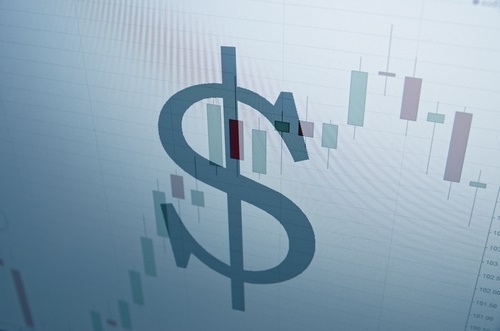
By Roger J Kerr

The NZD/USD exchange rate has recoiled rather abruptly from levels above 0.7400 to 0.7200 as the Australian dollar has weakened and the US dollar itself has recovered some lost value on global FX markets.
Yet again, the pricing pattern of the Kiwi dollar over the last 18 months is repeated with a swift retreat from the resistance point at 0.7400.
The reality of the speculative forex markets is that interest to buy the Kiwi dollar evaporates at 0.7400 and the sellers dominate.
The sharp increase in international investment market volatility over recent weeks, both central banks in Australia and New Zealand pushing back future interest rate increases and commodity/oil prices reversing downwards have influenced the environment to turn negative for the Kiwi dollar.
The RBNZ’s Monetary Policy Statement last week was interpreted by the financial markets as mildly bearish for the Kiwi dollar as it re-affirmed recent interest rate pricing that moved the first OCR increase back to mid-2019.
The overall impression of the RBNZ’s prognosis for the economy is that they have no clear picture themselves of which direction it will head in the future. Seemed a bit like a case of “on the one hand we expect this to happen, however on the other hand…” Take your pick!
The prevarication from the monetary authorities at this this time is a little disappointing as they have the econometric models and the largest team of economists in the country that should be able to forecast the economy with some confidence.
The economic uncertainties arise due the unusual mixture of our export commodity prices continuing to be at record highs (very positive for GDP growth), however business confidence has plummeted since the October change of government.
It does appear that collapse in business confidence is more than just an initial knee-jerk reaction to a new left-leaning government by the business community.
The observation is that business firms are very uncertain about what the Government policy changes in the employment/workplace arena mean for their operations.
Big parts of the economy remain very robust (agriculture, forestry, horticulture, tourism and construction), however some uncertainties hang over manufacturing and retail.
I never thought there would be a price collapse in the housing market that would upset retail spending and GDP growth. House prices have plateaued in Auckland over the last 12 months and that was what was anticipated.
Looking ahead two global forces will determine the medium term direction of the Kiwi dollar, namely:-
- How far the US dollar recovers from losses against the Euro over the last three months. The EUR/USD exchange rate has already swung around from $1.2500 to $1.2200 due to stronger US economic data. My view is that the FX markets became far too far ahead of themselves in strengthening the Euro due to expected changes in European monetary policy over the next two years. A return to below $1.2000 will pull the NZD/USD rate back to 0.7100.
- The speculative buying of commodities through December and January that propelled prices like crude oil to $70/barrel is now rapidly unwinding. Falling commodity prices is negative for the AUD, thus the NZD as well.
Daily exchange rates
Select chart tabs
Roger J Kerr contracts to PwC in the treasury advisory area. He specialises in fixed interest securities and is a commentator on economics and markets. More commentary and useful information on fixed interest investing can be found at rogeradvice.com

We welcome your comments below. If you are not already registered, please register to comment
Remember we welcome robust, respectful and insightful debate. We don't welcome abusive or defamatory comments and will de-register those repeatedly making such comments. Our current comment policy is here.